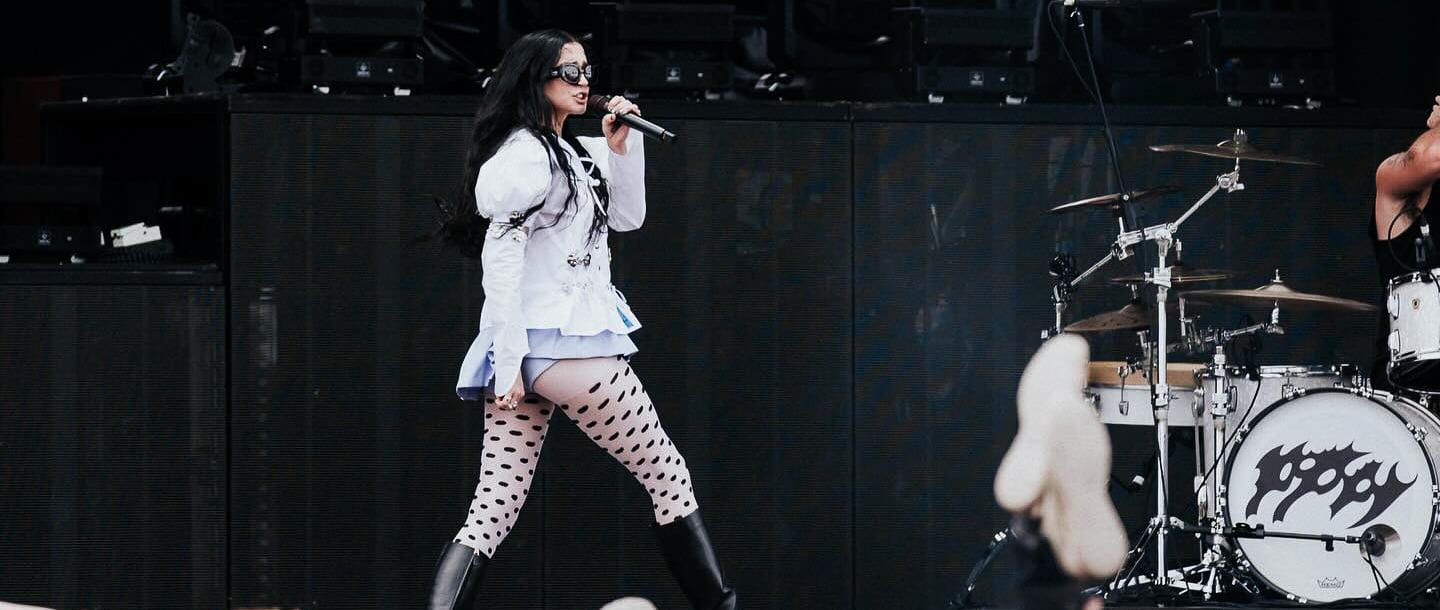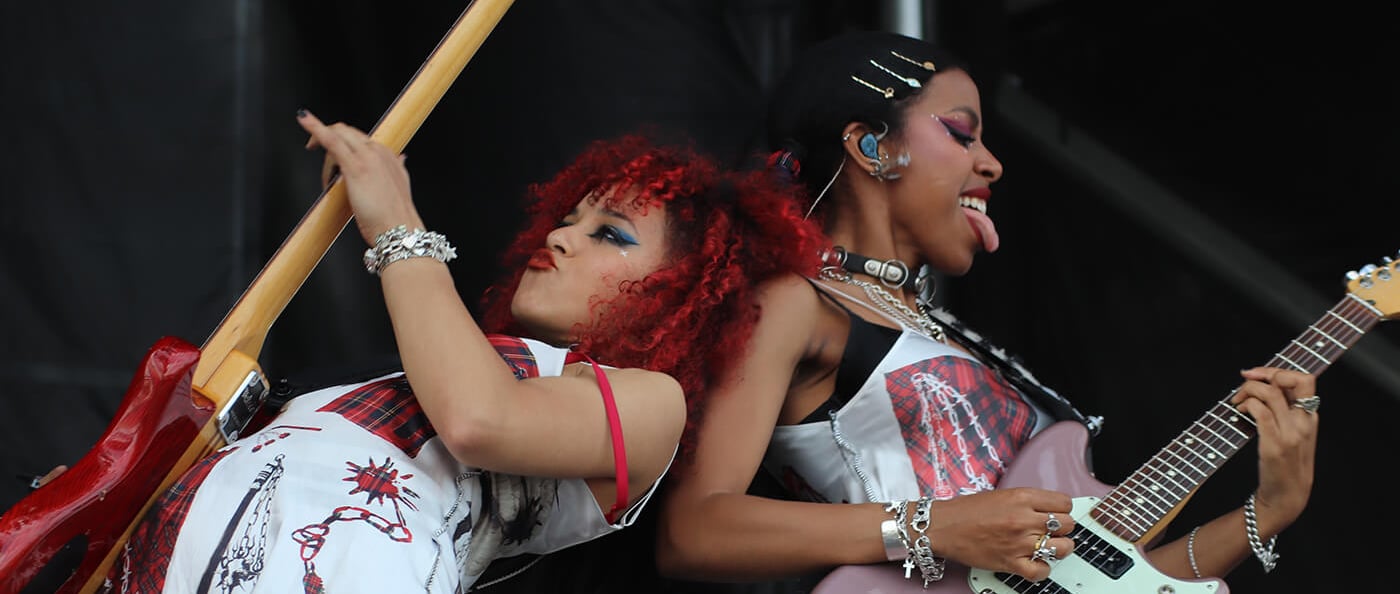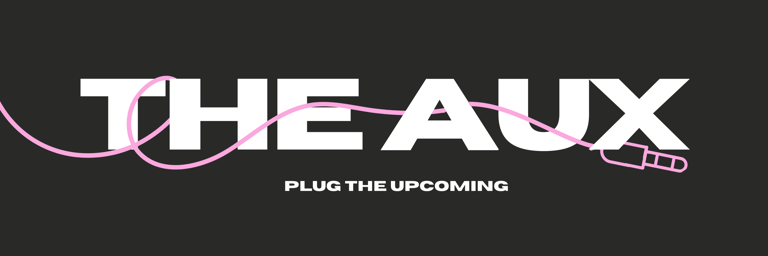The New Frontwomen: Rewriting the Rules of Alt and Metal
From heavy riffs to hyper-pop chaos, a new wave of women and gender-diverse artists—like Spiritbox, Poppy, Scene Queen, Nova Twins, and more—are redefining what it means to lead a scene, loudly and unapologetically.
FEATUREDALT ROCKMUSIC TALK
MADDI DUARTE
6/18/20254 min read


Right now, in a political climate where identities are constantly policed and expression is often censored or diluted, being yourself feels less like a challenge. But something quietly unruly has been bubbling up in the corners of the alternative music world for quite a while now: this new wave—led by a fiercely creative, unbothered crew of women and gender-diverse artists—is tearing through genres and kicking the whole idea of what it means to be a "frontperson" right in the teeth. By embracing complexity, messiness and social critique, they’re carving out space for voices that too often get silenced. It’s a quiet kind of rebellion, but one that feels more urgent than ever.
Artists like Sophie Powers and Scene Queen are kicking down the doors of pop and alt in wildly different—but equally defiant—ways. Sophie’s bratty, hyper-verbal alt-pop is part diary, part cultural commentary, twisting breakup anthems into glittering takedowns of low-effort romance and tired gender tropes. Her recent work swaps bubblegum for something more jagged—still theatrical, but now sharpened with teeth. Scene Queen, meanwhile, is turning emo and metalcore aesthetics on their head, injecting meme-culture absurdity and maximalist glam into every breakdown. Her sound is chaotic, loud, and unapologetically pink.
Courtney LaPlante’s work with Spiritbox injects emotional complexity into a metal scene that’s often defined by masculinity, pushing back against narrow expectations of what women can bring to the genre. The Warning, a trio of sisters from Monterrey, use their skill and stage presence to claim space in rock on their own terms, refusing to be sidelined or shaped by industry stereotypes. As they’ve said themselves, they see a bright future for rock, especially with younger generations who have open minds about exploring all kinds of music. Poppy’s genre-defying music, which swings between softness and aggression, reflects the struggle many women face in a culture that wants to control and categorise their identities and art. Meanwhile, Lzzy Hale’s enduring presence in rock proves that women can—and will—own their space for the long haul, refusing to be written off or forced into simpler roles. Together, these artists embody the larger movement of women and gender-diverse musicians reclaiming agency and reshaping the music industry’s rigid boundaries.
In this same spirit, Amira Elfeky pushes back against labels, humorously owning the “girly metal” tag critics threw at her, proving that music doesn’t need to fit anyone else’s rules but your own. The Pretty Wild similarly reshape the scene by rejecting predefined categories, showing that bold authenticity can create new spaces in a resistant industry. Meanwhile, bands like Nova Twins and ALT BLK ERA are rewriting the blueprint altogether. Nova Twins fuse punk, grime, and heavy riffs into a fierce, politically charged sound that demands Black women’s visibility in spaces that have often excluded them. At the same time, ALT BLK ERA mix metal, rap, and Afrofuturism into a genre-defying, theatrical storm—two sisters creating music that refuses every box the industry tries to impose.
Together, these artists are dismantling old rules and building something vibrant and fearless—a scene that no longer asks for permission but takes what’s theirs, unapologetically themselves in every note, scream, and synth line.




So what really links all these artists?
It’s not just the anger, though there’s plenty of that. It’s not simply about rejecting “pretty” or “palatable.” It’s about showing up as themselves in a world that constantly tries to silence or simplify them. In today’s political climate, where identities are policed and voices are threatened, being true to yourself is a radical act. Stepping onto a stage, a screen, or a playlist and saying, “I’m not here to fit your idea of me—I’m here to be real,” carries a weight far beyond music. The industry and culture are being forced, sometimes against their will, into a new era where softness is strength, difference is power, and authenticity is the ultimate resistance.
For too long, frontwomen were told how to be—strong, but not too strong; sexy, but not too much; fierce, but marketable. The new generation refuses those cages. They’re bleeding on stage, turning pain into poetry, wielding their intelligence like armour, and wearing outfits that challenge anyone who tries to underestimate them. Take pop artist Sabrina Carpenter, who’s been clear that she doesn’t choose to sing about sex or make it her defining theme—her audience decides what becomes popular. That push and pull between artist intention and cultural consumption highlights just how much control these artists are reclaiming.
What this really shows is that being authentic isn’t just a choice anymore but a necessity. In a world where so many forces try to silence or simplify who people are, these artists are leading conversations about identity, power, and what it means to be yourself right now. By owning their stories in their own way—whether that means pushing back on expectations about sex, showing vulnerability, or calling out unfair systems—they’re opening up new spaces for anyone who’s ever felt stuck or misunderstood. They’re showing that it’s okay, even necessary, to be real and unfiltered.
That’s why this moment feels so important. When artists are brave enough to be honest and raw, they don’t just change the songs we listen to—they help change the world we live in.
LATEST POSTS:
Nova Twins. Image: Justin Beckner
Poppy. Image: The Rock Revival
